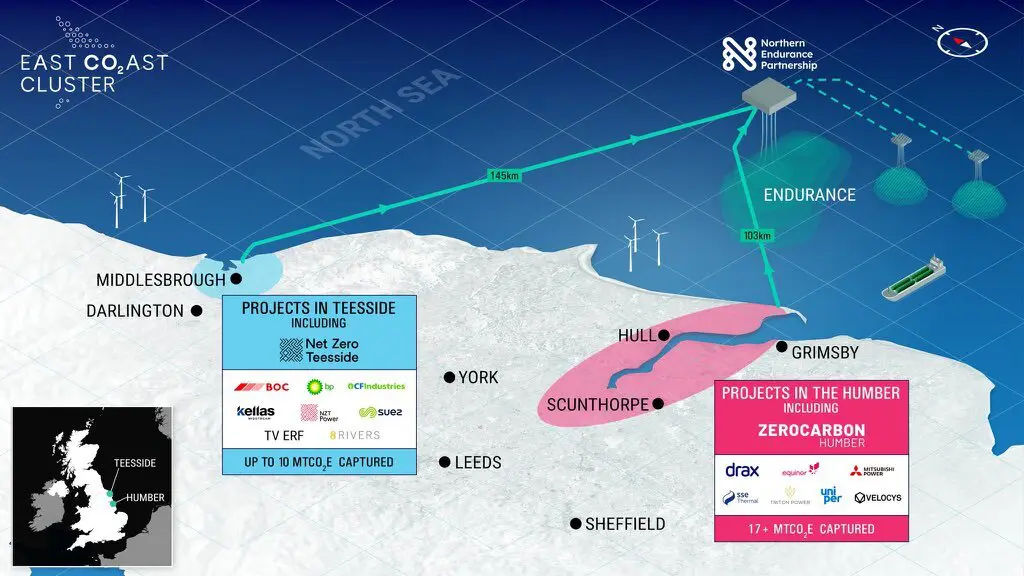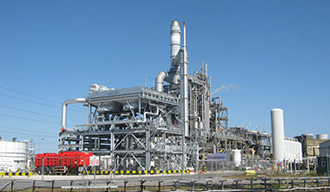The East Coast Cluster, including Net Zero Teesside, has been named as one of the UK’s first carbon capture, usage and storage (CCUS) hubs following a successful bid to the Department for Business, Energy & Industrial Strategy (BEIS).

The news is the culmination of several years of work by OGCI CI – who made Net Zero Teesside the fund’s first ever investment in 2017 – and a consortium of OGCI member companies led by bp. Net Zero Teesside became OGCI’s first ‘kickstarter’ hub, providing a potential model for future CCUS hub projects.
At the start, OGCI CI’s investment and expertise was vital in revizing and commercializing the initial concept developed by the Energy Technologies Institute. As the project progressed, the team worked with the UK government and others to identify the value of CCUS to the UK and to get support for the hub concept. In 2020, OGCI CI formally handed over operatorship of the hub to a consortium of OGCI member companies, led by bp, who along with Equinor and TotalEnergies will now take this project forward. The progression of this project over the past four years exemplifies what OGCI stands for – collective, systems-level actions to deliver substantial carbon reduction.
The hub is now on course for deployment by the mid-2020s. Once operational, the East Coast Cluster, which includes both Net Zero Teesside and the adjacent Zero Carbon Humber projects, aims to remove nearly 50% of all UK Industrial cluster carbon dioxide emissions. The East Coast Cluster expects to create and support an average of 25,000 jobs per year between 2023 and 2050, with approximately 41,000 jobs at the peak in 2026.





